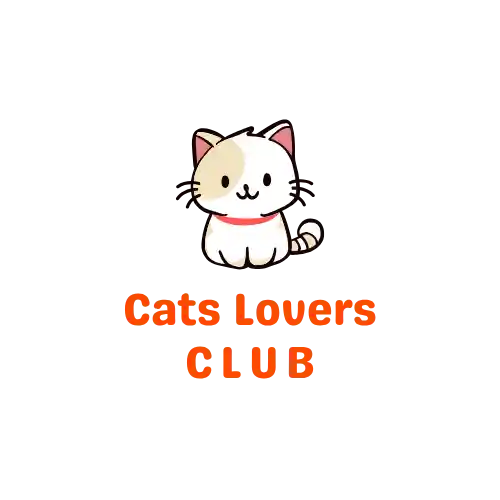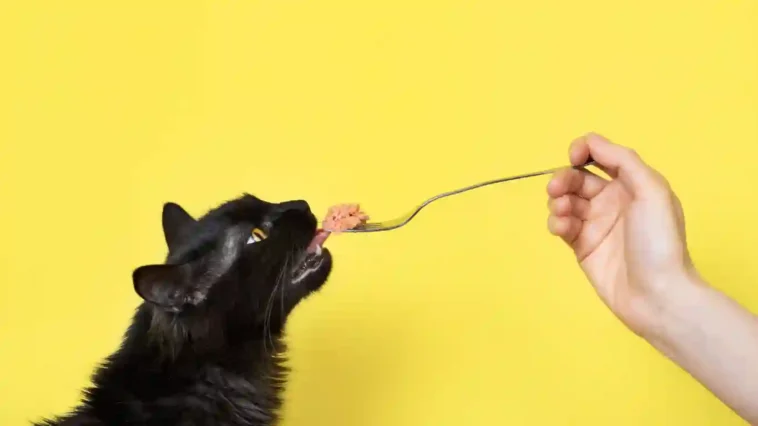It’s normal to want to share your snack with your cat. But cats don’t digest food the way we do. Much of our daily food can mess up a cat’s body and lead to serious health issues. If you love your cat, it’s not just about giving them healthy food—it’s about knowing which human foods to avoid altogether.
Let’s go over 14 things your cat should never eat. Ever wondered why milk and tuna are on that list? Or what’s wrong with grapes and avocados? Why is salt so bad for cats? Keep reading to find out.
14. Chocolate
Chocolate is yummy for us, but it’s toxic for cats. That’s because it has something called theobromine. People can process it fine, but cats can’t. Dark chocolate and baking chocolate are even worse because they have more cocoa.
How much is dangerous? Just 0.2 ounces of intense chocolate can harm your cat. The effects can be scary—vomiting, diarrhea, shaking, seizures, or even death.
13. Milk, Cheese, and Other Dairy
We all grew up seeing cartoons of cats drinking milk. But the truth is, most adult cats can’t handle it. Kittens have a special enzyme that helps them digest milk, but they lose it as they grow up.
So, giving your cat cheese, cream, or milk might upset their stomach. It could lead to vomiting, diarrhea, or gas. Even kittens shouldn’t have cow’s milk—it has too much lactose. Also, milk has lots of fat and sugar, which can cause weight gain and even diabetes in cats.
Think giving a cat a saucer of milk is harmless? It’s like eating a whole 12-inch pizza on top of your regular meals. Too much!
12. Salt
Do you let your cat nibble on your food? Be careful. Most of our food has too much salt. And salt is bad for cats. Eating a lot can cause salt poisoning, which leads to vomiting, fever, diarrhea, thirst, shaking, or worse.
It can even cause death in some cases. Over time, too much sodium might lead to high blood pressure in cats—just like in people. Experts say more than 41 milligrams of salt a day can be harmful. That’s less than 1/16 of a teaspoon. Keep your cat away from salty snacks like fries, pretzels, or popcorn, especially if they have kidney issues.
11. Citrus Fruits
Oranges, lemons, limes, and grapefruits may seem harmless, but they’re not great for cats. They have oils and acids that can upset their stomach. A tiny amount might just make them feel sick, but a lot could cause vomiting, tremors, liver trouble, or worse.
Even the peels, leaves, stems, and seeds can be harmful. Cats can also get skin rashes if they touch citrus. Breathing in citrus oils or other essential oils can also be bad. The good news? Cats usually hate the smell of citrus, so they stay away from it.
10. Raw Meat, Eggs, and Fish
Feeding your cat raw food might sound “natural,” but it’s risky. Raw meat, eggs, and fish can carry bacteria like salmonella and E. coli. Cooking the food properly kills these harmful germs.
Raw eggs also have something called avidin, which blocks vitamin B7 absorption. This can lead to skin and coat problems. Raw fish contains an enzyme that destroys thiamine, another essential B vitamin. Without it, your cat could have nerve issues.
9. Bones
Cartoons show cats happily chewing on fish bones—but real life is different. Cooked bones can break into sharp pieces and get stuck in your cat’s throat or stomach. They can also hurt their mouth or break their teeth.
Worse, bones can cause a blockage that may need surgery. So skip the bones and stick to safe treats instead.
8. Avocados
Avocados are super healthy for us, but not for cats. They contain a toxin called persin. It’s safe for humans but can be dangerous or even deadly for animals.
Persin is found in the fruit, pit, leaves, and plant. Eating it can cause vomiting, diarrhea, heart problems, or pancreatitis in cats. Be careful with guacamole—don’t let your cat sneak a bite.
7. Grapes and Raisins
Never give grapes or raisins to your cat. They’re known to be highly toxic. Even a small amount can cause sudden kidney failure.
That includes grape juice, grape jam, and baked goods with raisins. Even some breakfast cereals have raisins. Sadly, some cats have died after eating just a few.
6. Hot Dogs
Hot dogs might smell great to your cat, but they’re not a good snack. They often have stuff like sugar, artificial ingredients, and bad fats that cats can’t handle.
Also, hot dogs have seasonings like onion or garlic powder—both toxic to cats. The salt is another big problem. All processed meats are bad for cats. They’re full of salt, fat, and chemicals that mess up their digestion.
5. Tuna
Cats love tuna—maybe a bit too much. It tastes great, and some cats won’t eat anything else if they get used to it.
In small amounts, it’s okay as a treat. But giving tuna too often can be dangerous. It doesn’t have all the vitamins and nutrients cats need. Feeding too much tuna can cause malnutrition in the long run.
4. Macadamia Nuts
These nuts are a no-go. Even a tiny bit can make your cat sick. You’ll find macadamia nuts in cookies, cakes, muffins, and trail mix.
If your cat eats them, it can cause shaking, weakness, and other serious problems. And if they also eat chocolate simultaneously, it can be deadly.
3. Caffeine
Anything with caffeine should be kept far away from your cat. Caffeine messes with their nervous system. It speeds up their heart rate and raises their blood pressure.
It can also cause vomiting, shaking, or even seizures and death. Cats are way more sensitive to caffeine than people. Keep coffee, tea, soda, energy drinks, and coffee grounds out of reach.
2. Alcohol
Of course, you’d never give your cat alcohol on purpose. But accidents happen. Alcohol is in stuff like cough syrup, perfume, mouthwash, and even cleaning sprays.
Even a small amount can be harmful. It causes vomiting, poor coordination, and breathing problems. In severe cases, it can shut down organs or even cause death. Always keep alcohol-containing products safely stored.
2 (again!). Raw Dough
If baking bread, keep the raw dough away from your cat. The yeast in the dough keeps rising—even inside your cat’s belly.
This causes painful bloating and can twist their stomach. It can become a life-threatening emergency. Plus, yeast makes alcohol as it ferments, so it also risks alcohol poisoning. Always keep raw dough far from your cat.
1. Feeding the Same Food Forever
Giving your cat the same food daily might seem like a good idea, but it can backfire. Over time, they can become picky and only want that one brand.
That’s a problem if your cat needs a diet change later—for example if they develop kidney problems. You don’t need to give your cat tons of different foods, but switching can be hard or impossible once they’re hooked on one flavor.
Final Thoughts
We all love our cats and want to keep them happy and healthy. But what seems like a harmless treat to us could be dangerous for them. It’s worth taking a few extra minutes to check what’s safe and what’s not. Your little buddy depends on you to make the best choices for their health, including saying “no” to sharing snacks that could hurt them.





GIPHY App Key not set. Please check settings